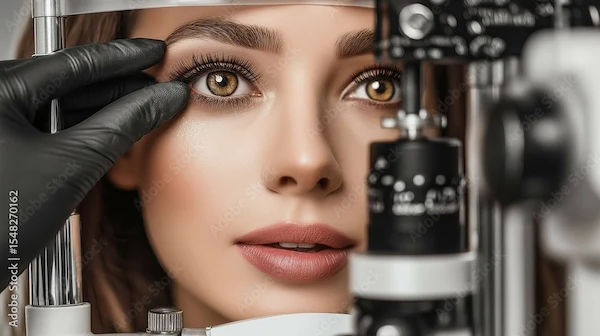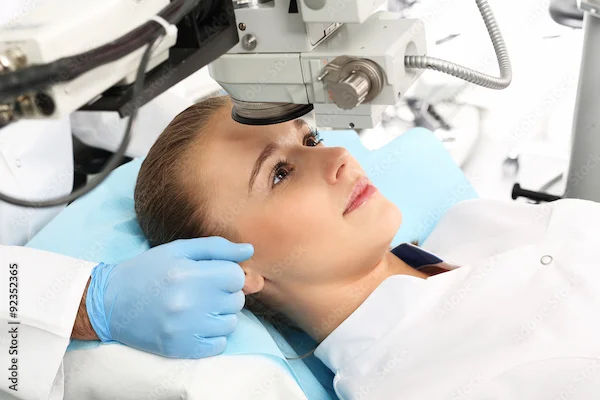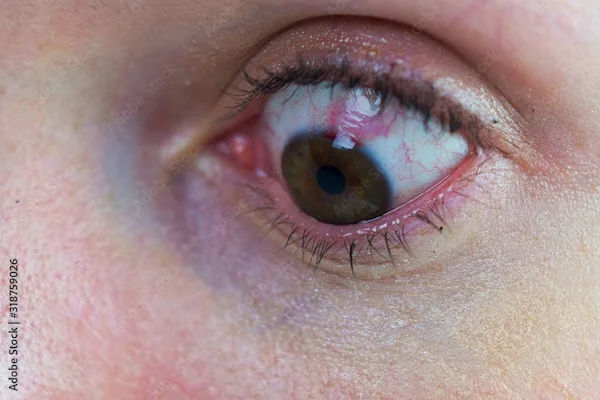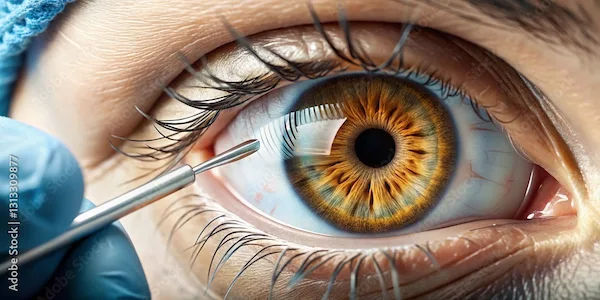Yellow Discharge From Eye After Cataract Surgery
Yellow discharge from the eye after cataract surgery? Learn about possible causes, warning signs, home care tips, and when to see a doctor.

Written by Dr.Sonia Bhatt
Last updated on 16th Jul, 2025
.webp)
Introduction
Cataract surgery is a common and generally safe procedure that helps restore clear vision by removing the cloudy lens and replacing it with an artificial one. However, like any surgery, it can sometimes lead to minor complications during recovery. One such concern is yellow discharge from the eye, which can be alarming for patients.
If you notice yellow discharge after cataract surgery, it’s important to understand what it could mean, when to seek help, and how to manage it effectively.
What Causes Yellow Discharge After Cataract Surgery?
Yellow or greenish discharge from the eye after cataract surgery is often a sign of infection or inflammation. Some possible causes include:
1. Conjunctivitis (Pink Eye) – A mild infection of the outer layer of the eye, often caused by bacteria or viruses.
2. Bacterial Infection (Endophthalmitis – Rare but Serious) – A severe infection inside the eye that requires immediate medical attention.
3. Blepharitis – Inflammation of the eyelids, which can lead to crusty or yellowish discharge.
4. Blocked Tear Duct – Sometimes, surgery can temporarily affect tear drainage, leading to discharge.
While mild discharge may be normal due to post-surgical healing, persistent or worsening yellow discharge, especially with pain or vision changes, should not be ignored.
Symptoms to Watch Out For
If you experience any of the following along with yellow discharge, consult your doctor immediately:
Increased redness or swelling
Severe eye pain
Blurred or decreased vision
Sensitivity to light
Fever or general discomfort
These could indicate a serious infection that needs prompt treatment.
Consult Top Specialists for Personalised Eye Health Advice
How to Manage Yellow Discharge at Home
For mild cases, your doctor may recommend:
Warm Compress – Gently apply a clean, warm cloth to the eye to help loosen crusts and improve drainage.
Artificial Tears – Lubricating eye drops can help soothe irritation.
Eyelid Hygiene – Clean eyelids with a mild, diluted baby shampoo or prescribed eyelid cleanser.
Avoid Rubbing the Eye – This can worsen irritation or spread infection.
Do not use over-the-counter antibiotic drops without consulting your doctor first.
When to See a Doctor
If the discharge:
Does not improve in 1-2 days
Becomes thicker or more pus-like
Is accompanied by pain or vision changes
Seek medical help immediately. Delaying treatment for an eye infection can lead to complications, including vision loss.
How to Prevent Infections After Cataract Surgery
To reduce the risk of infection:
Follow Post-Op Care Instructions – Use prescribed eye drops as directed.
Avoid Touching or Rubbing Your Eyes – Always wash hands before handling eye drops.
Keep Water Away from Eyes – Avoid swimming or splashing water in the eyes for at least a week.
Wear Protective Eyewear – Use sunglasses to shield your eyes from dust and sunlight.
Your eye health is precious, and any unusual symptoms after cataract surgery should be evaluated by a specialist. If you notice yellow discharge, don’t panic—but don’t ignore it either.
Book a consultation with an ophthalmologist on Apollo 24|7 for quick and reliable care.
Final Thoughts
Yellow discharge after cataract surgery can be a sign of infection or inflammation. While mild cases may resolve with simple care, persistent symptoms require medical attention. Always follow your doctor’s post-surgery instructions and report any unusual changes immediately.
Consult Top Eye Specialists
Consult Top Specialists for Personalised Eye Health Advice

Dr. Rajeev Gupta
Ophthalmologist
24 Years • MBBS, MS (Ophthalmology)
Ghaziabad
Om Eye & Gynae Centre, Ghaziabad
Dr. S Venkateswaran
Ophthalmologist
35 Years • MBBS, PGD (OPTHALMOLOGY)
Tiruvannamalai
Shiva Eye And General Hospital, Tiruvannamalai

Dr. Esha Trideep Kshatriya
Ophthalmologist
3 Years • MBBS , MS (OPHTHALMOLOGY)
Bhuj
KCRC-Blind Peoples Association, Bhuj

Dr. Balakrishna Balaka
Ophthalmologist
6 Years • MBBS, MS Ophthalmology
Visakhapatnam
Balakrishna eye clinic, Visakhapatnam

Dr. Jyoti Dhaka
Ophthalmologist
9 Years • MBBS, Dip in (OPHTHALMOLOGY),DNB (OPHTHALMOLOGY)
Jhujhunu
Dr.Jyoti Dhaka Eye Clinic, Jhujhunu
(25+ Patients)
Consult Top Eye Specialists

Dr. Rajeev Gupta
Ophthalmologist
24 Years • MBBS, MS (Ophthalmology)
Ghaziabad
Om Eye & Gynae Centre, Ghaziabad
Dr. S Venkateswaran
Ophthalmologist
35 Years • MBBS, PGD (OPTHALMOLOGY)
Tiruvannamalai
Shiva Eye And General Hospital, Tiruvannamalai

Dr. Esha Trideep Kshatriya
Ophthalmologist
3 Years • MBBS , MS (OPHTHALMOLOGY)
Bhuj
KCRC-Blind Peoples Association, Bhuj

Dr. Balakrishna Balaka
Ophthalmologist
6 Years • MBBS, MS Ophthalmology
Visakhapatnam
Balakrishna eye clinic, Visakhapatnam

Dr. Jyoti Dhaka
Ophthalmologist
9 Years • MBBS, Dip in (OPHTHALMOLOGY),DNB (OPHTHALMOLOGY)
Jhujhunu
Dr.Jyoti Dhaka Eye Clinic, Jhujhunu
(25+ Patients)




